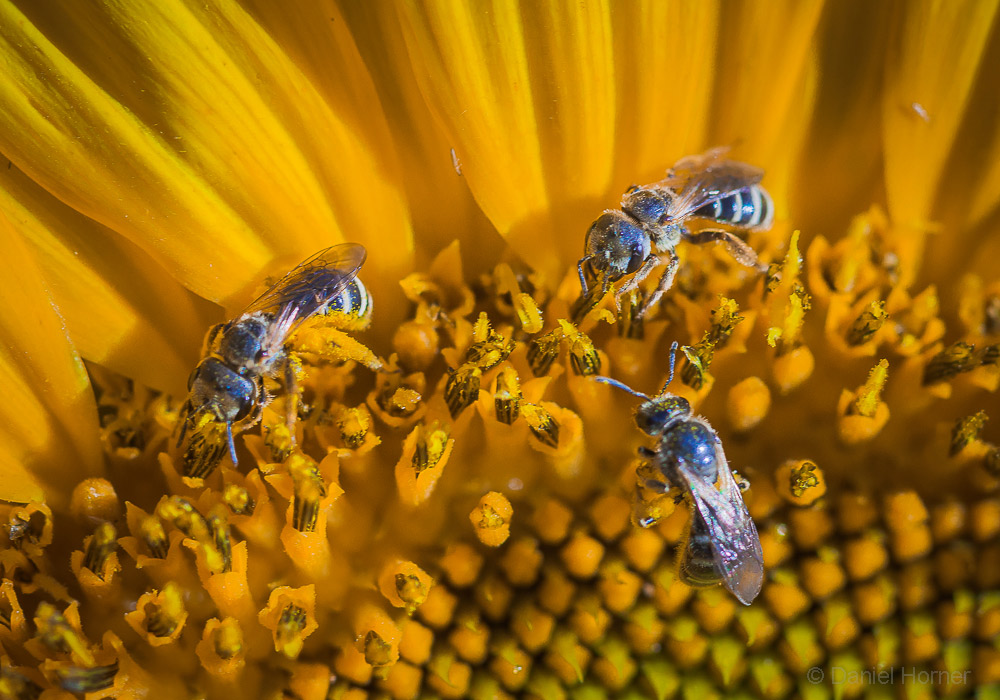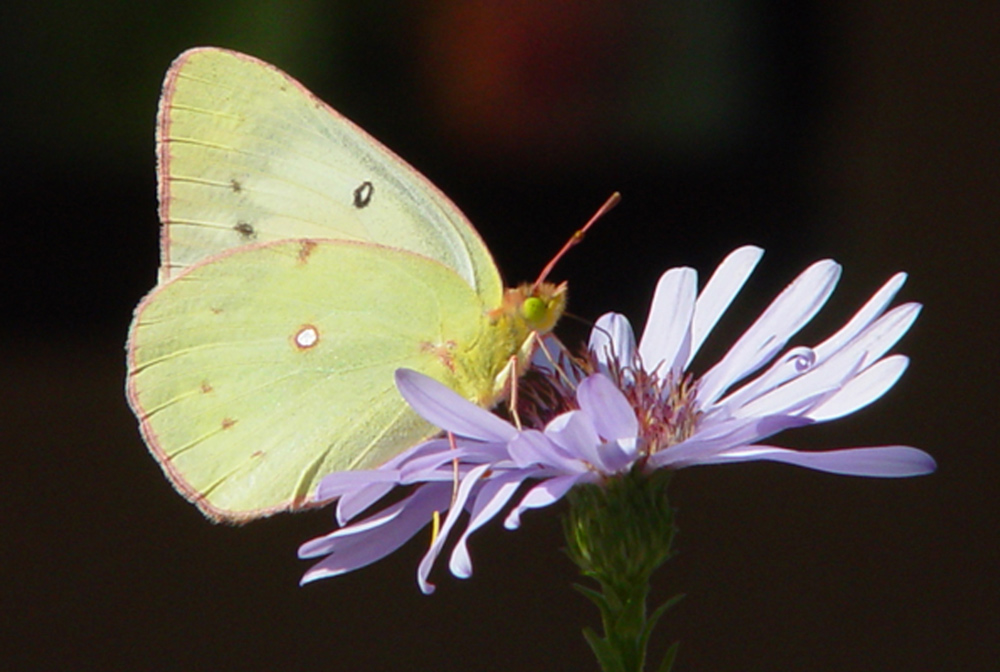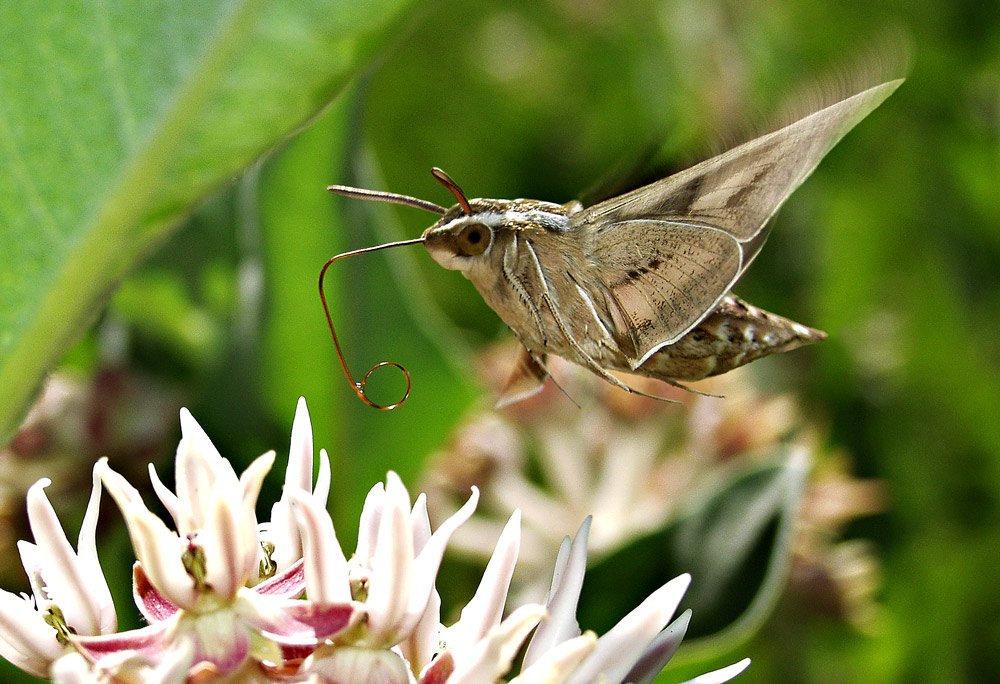 Bees look small against a giant sunflower. Photo credit: Mariposa Master Gardeners
Bees look small against a giant sunflower. Photo credit: Mariposa Master Gardeners
The hum made by pollinating critters is music to a gardener’s ears. The jobs done by the native bees, beetles, moths, butterflies, hummingbirds and others are critical to a healthy garden, especially for anything you grow for food – it’s estimated that pollinators are responsible for one in three bites humans take.
Mariposa County Master Gardeners will present a free workshop on these important creatures on Saturday, April 23, 2016 from 10 a.m. to noon at the Board of Supervisors chambers, 5100 Bullion St., Mariposa. Please register for the workshop at cemariposa.ucanr.edu or call (209) 966-2417.
 A Cabbage White Butterfly visits an aster. Photo credit: Mariposa Master Gardeners
A Cabbage White Butterfly visits an aster. Photo credit: Mariposa Master Gardeners
Master Gardener Coordinator Kris Randal will cover the non-bee pollinators. She’ll explain what attracts them to your garden and why some of them need specific plants to live. For instance, the Monarch butterfly must have a local, native milkweed to survive. You’ll learn what these good bugs do for your garden, and what you need on your plant list in order to attract them.
Master Gardener Dan Horner will be the bee guy. He’ll give you an overview of the nearly 1,600 species that call California home. Some are social, living in hives or other groups, but the majority are solitary and make their homes in holes they dig in the ground, in dead trees, rodent holes or the pithy, soft stems of plants. Some are so tiny you might not recognize them as bees and some, such as bumblebees, are so big they bend the stems of the flowers they visit.
 Sphinx moths pick up pollen on their legs and wings and accidentally deposit pollen on the next flower they visit to suck up nectar. Photo credit: Mariposa Master Gardeners
Sphinx moths pick up pollen on their legs and wings and accidentally deposit pollen on the next flower they visit to suck up nectar. Photo credit: Mariposa Master Gardeners








